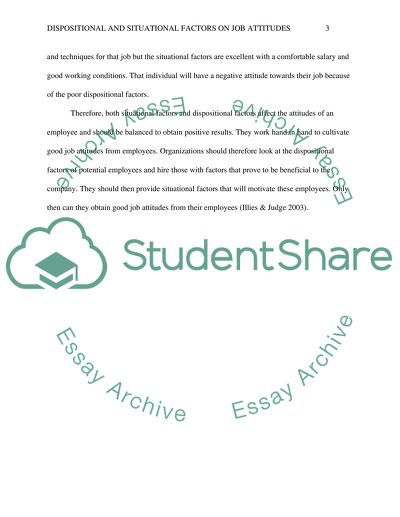Dispositional Versus Situational Factors and Job Attitudes Coursework. Retrieved from https://studentshare.org/psychology/1686282-dispositional-versus-situational-factors-and-job-attitudes
Dispositional Versus Situational Factors and Job Attitudes Coursework. https://studentshare.org/psychology/1686282-dispositional-versus-situational-factors-and-job-attitudes.


